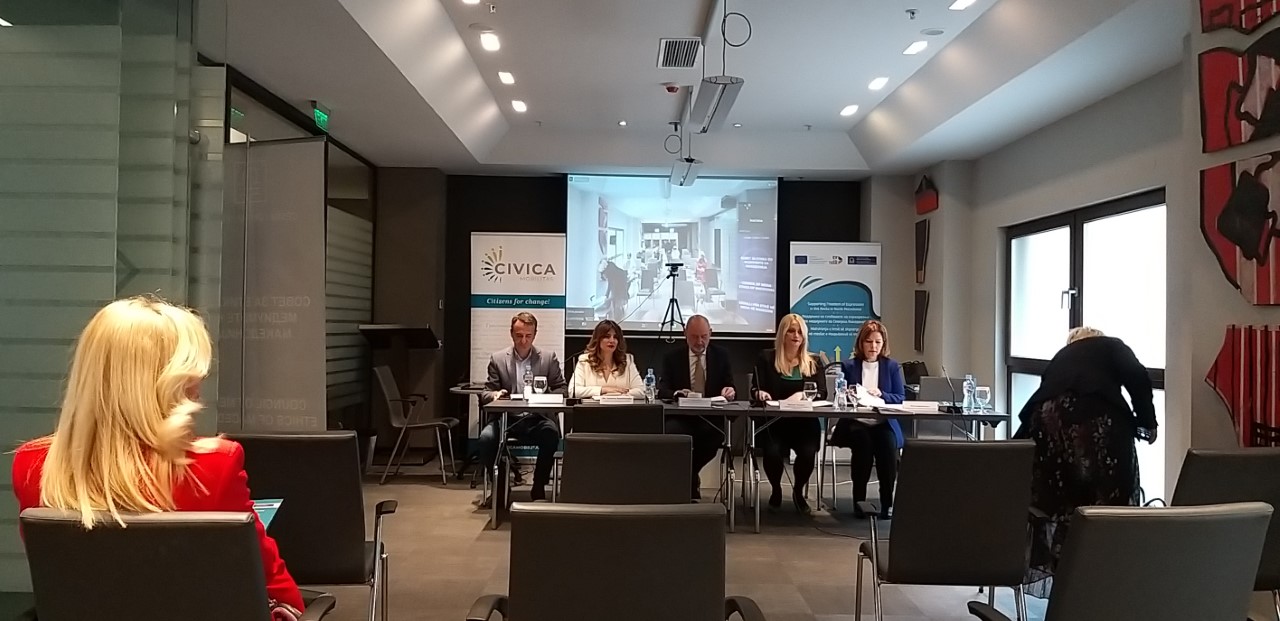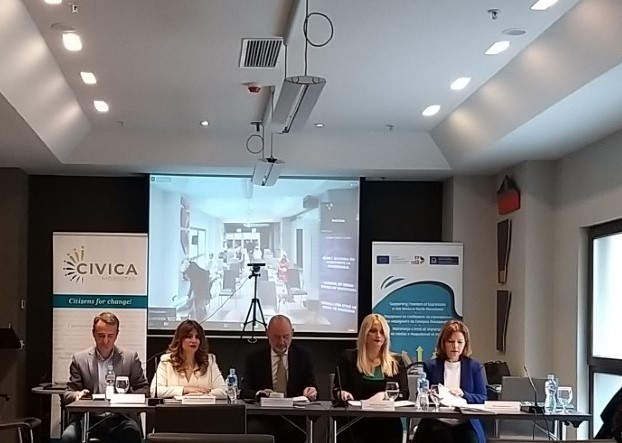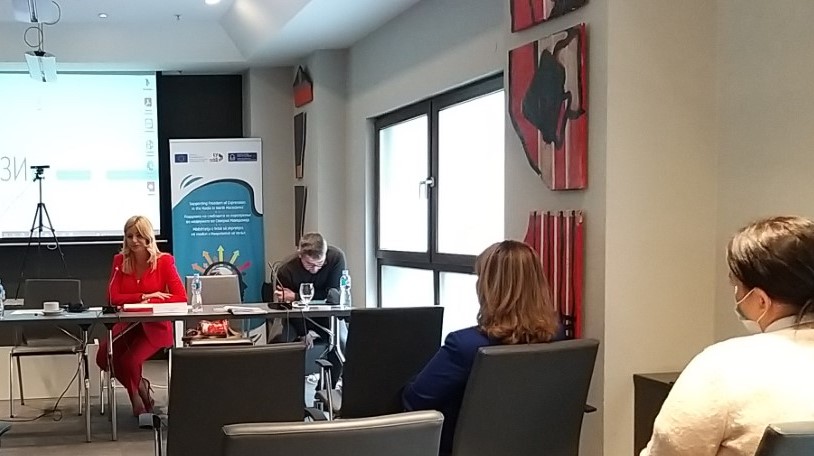There is a genuine necessity of debates and opening up dialogues in terms of what is being published in social media. Additionally, the laws that are applicable in the state are to be harmonized with the European ones, due to the fact that the valid laws are rather obsolete and out-dated and do not include the online media. These are just a few of the conclusions from today’s held debate entitled Media Self-Regulation and Necessary Measures for Improvement of Media Professionalism, organized by the Council of Media Ethics of Macedonia. According to the EU Ambassador, Mr. David Geer, the freedom of expression remains a crucial value for the European Union, but, nonetheless, it is under constant threat, both in the Union, and in the country. Mr. Geer emphasized that a wider consensus for dialogue was required with all relevant stakeholders in the country when it comes to the states in the sphere of media, and that the European Union would embrace and uphold such a dialogue. Furthermore, he highlighted that the EU shall make use of a series of financial instruments as a support to this sphere, both in the country, and beyond in the Western Balkans.

Referring to the eight-year operation of the Council of Media Ethics of Macedonia, the President of the Council, Ms. Katerina Sinadinovska, pointed out to the present position of the Council as an established and professional body. ‘As journalists and as a media community, we have come to this position entitling us to govern and regulate the journalistic standards’, stated Ms. Sinadinovska alluding to the existence of the Register of Professional Media. The Executive Director of the Council, Ms. Marina Tuneva, highlighted that the implementation of the self-regulation had put forward the process related advantages, as well as challenges, as regards professionalism in reporting. Mr. Mirche Adamchevski, the President of the Complaints Commission within CMEM, stated that in the course of the past several years they had received approximately 500 complaints, 80 percent of which were targeted at online media. The CMEM representatives pinpointed the necessity of long-term self-sustainability of the Council of Media Ethics of Macedonia.
‘A systematic approach is required for a shift and move forward, and not mere statement of existence of freedom of speech and the fact that people are not sent to prison’, stated the President of the Association of Journalists, Mr. Mladen Chadikovski, in his address tackling the necessity of improvement to laws. Moreover, he emphasized the paramount importance of existence of a Fund for Projects of Public Interest.

According to Ms. Biljana Petkovska, the Director of the Macedonian Institute for Media, the European trends are directed at balancing between the regulatory and self-regulatory mechanisms. Ms. Petkovska quoted certain findings from the latest research they had conducted, according to which it was online media that predominantly violated the professional standards, whereas hate speech was commonplace in social media. ‘Some of the online media maintain client-oriented relations with the political and business power centres thus frequently creating or disseminating disinformation and propaganda in a rather coordinated manner’, stated Ms. Petkovska.
Mr. Darko Duridanski from the Independent Union of Journalists and Media Workers of Macedonia addressed the present state that the journalists were in, and quoted certain findings from research they had conducted. He stated that half of the journalists were contemplating leaving their jobs as a result of their straitened circumstances. In conformity with their research, one third of the journalists worked more than 40 hours per week, and they were not paid for their overtime work.

The majority of the debate attendees and participants reiterated the necessity of a wider scope of dialogue as regards contents presented and published via online media.The debate is organized within the framework of the project entitled ‘EU Support to Improvement of Media Ethics’, supported by the European Union and with a financial support from Civica Mobilitas Programme.